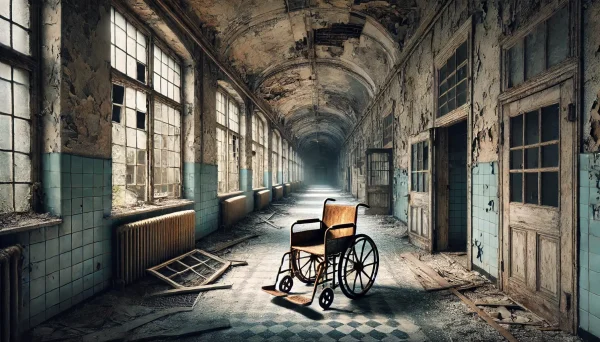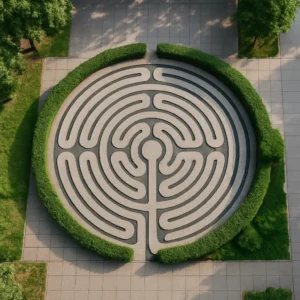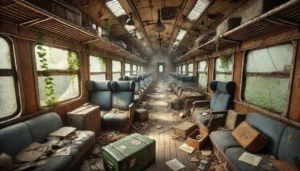Abandoned hospitals evoke a unique blend of fascination and fear. These buildings, once filled with the sound of voices, beeping monitors, and hurried footsteps, now stand eerily silent. Stripped of their original purpose, they become haunting monuments to medical history, urban decay, and lost time.
Why Are Hospitals Abandoned?
Hospitals can be abandoned for many reasons. In some cases, they outlive their usefulness due to outdated infrastructure. In others, newer facilities render them obsolete. Economic downturns, population shifts, and disasters can also play a role. Whatever the reason, their departure leaves behind structures heavy with memories.
Aesthetic of Decay: Why Explorers Are Drawn In
Urban explorers often seek out abandoned hospitals not only for the thrill but for the powerful visual storytelling they offer.
- Long corridors with peeling paint
- Rusty wheelchairs left in haste
- Faded medical charts still on clipboards
- Empty operating rooms frozen in time
These images are both beautiful and chilling. The contrast between care and abandonment evokes a strong emotional response, making these locations ideal for exploration, photography, and reflection.
Notorious Abandoned Hospitals Around the World
📍 Beelitz-Heilstätten, Germany
Originally built as a tuberculosis sanatorium in the 1800s, this complex was later used during World Wars. Today, its overgrown buildings and echoing halls attract explorers from across Europe.
📍 Waverly Hills Sanatorium, USA
Famous for its history as a tuberculosis treatment center, Waverly Hills is now a hotspot for ghost tours and paranormal enthusiasts.
📍 Hellingly Hospital, UK
Once a psychiatric hospital, Hellingly closed in 1994. Though much of it has been demolished, remnants still hint at its institutional past.
📍 Pripyat Hospital, Ukraine
Abandoned after the Chernobyl disaster, this hospital remains frozen in time, with discarded protective suits and old equipment scattered across its radioactive rooms.
The Emotional Power of Forgotten Medical Spaces
There’s something deeply human about hospitals — they are places of birth, healing, trauma, and death. When abandoned, that emotional charge doesn’t disappear. Instead, it settles into the walls, creating an atmosphere thick with memory.
Moreover, these places challenge us to think about progress, neglect, and how we treat spaces — and people — no longer seen as “useful.”
Urban Exploration and Ethical Considerations
Exploring abandoned hospitals can be risky and illegal. Many are structurally unsound or contaminated with hazardous materials like asbestos and mold. Always research local laws, and never explore alone or without proper equipment.
📌 Responsible exploration means:
- Leave everything as you found it
- Do not vandalize or take objects
- Respect the history and space
- Share stories, not souvenirs
The Role of Art and Photography
Photographers and visual artists are especially drawn to these sites. The natural lighting through broken windows, the untouched artifacts, and the overall atmosphere offer a canvas unlike any other. Their work helps preserve these places, not through restoration, but through visual memory.
Final Thoughts: Finding Beauty in the Abandoned
Abandoned hospitals are more than decaying buildings. They are vessels of humanity’s most intimate moments — hope, pain, love, and loss. By exploring and documenting them, we connect with stories left untold and preserve the silent echoes of history.
Through respectful exploration, we honor what once was — and what still lingers.
🔗 Link Interno:
Explore More Forgotten Urban Structures
🔗 Link Externo:
Inside the World’s Most Haunted Hospitals (National Geographic)







